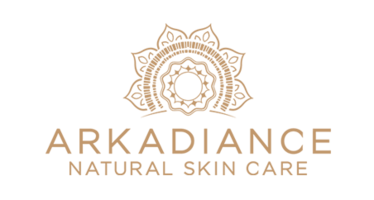
2018 was one of my most intense years yet. All year long, I kept thinking that I would relax a few days later. But later never came. It was a big growing year and held lots of change, personally and professionally. It included a new home, adding my first full-time Arkadiance team member, a new business model for our construction and development company, a new niece, nanny sharing for the first time, and hosting eight rounds of out of town company. Plus the normal chaos of three growing girls and my husband and I both being entrepreneurs. I loved all of it and feel accomplished in 2018; however, the only two days of the year where I “relaxed” were when I was lying flat on my back from illness.
Wikipedia’s definition of biological stress: “Physiological or biological stress is an organism's response to a stressor such as an environmental condition. Stress is the body's method of reacting to a condition such as a threat, challenge or physical and psychological barrier. The autonomic nervous system and hypothalamic-pituitary-adrenal (HPA) axis are two major systems that respond to stress.[1]” These are the body systems that stimulate “Fight or Flight” and pump out cortisol, respectively.
Big take away: Stress is a biological experience that can be neutralized when we protect ourselves by creating balance. Specifically, when our “Fight or Flight” response is on overdrive, we have to compensate by choosing “Rest and Digest”.
As 2019 hit, I paid the price for the past year's worth of chronic stress with the first week being filled with stress-induced cold sores, a return of my auto-immune disease Lichen Planus, a sluggish metabolism that’s not responding to diet, sleeping through alarms, and deepening dark circles under my eyes. My skin has always been like a fire alarm, blaring with flare ups to tell me that I’m not okay. The stress is even starting to impact my thinking because I recognize useless anxiety being a distraction. I backed into the basketball pole on my own driveway while rushing out, twice. Also, I’ve noticed nagging-like worries about irrational things. Worries that I could be in an accident any minute on the highway, worrying something will happen to my kids when I’m not with them, worrying that one or both my parents won’t come back from their vacation to India. Luckily, my brain’s prefrontal cortex is well aware that these occasional, fleeting fears are irrational. And although these concerns are statistically not likely to happen, I've still had enough of them.
As the physical symptoms of stress have really hit me, I have decided to embrace the colder, quieter months for a recharge. The weighty grayness makes most of us a bit more sensitive, frustrated, and tired; however, it is also a great time to focus internally. A chance to focus on your nuclear family (that’s still five people for me!), on your body, and on your home. On January 5th, I committed to making a substantial change because I sensed that if I didn’t listen to my body, something far worse than these small issues would rise.
It has only been 3 weeks of improved self-care, but I feel like a new person physically and have seen an improvement in mental clarity and productivity as a result. I have made a commitment to increase my sleep and meditation, both of which have been essential to my metabolism and immunity. My instinct was telling me something serious would happen if I didn’t change the approach of burning the candle at both ends. And now, the gut voice is quiet and grateful. My gut instinct feels respected and safe, like a lioness curled up under a tree. She did her work and is soaking up the time to rest.
I’m feeling strong that 2019 is going to be a better year. 19 is my favorite number and this year I will turn 40. I love to commemorate my new outlook with a mantra. Last year’s mantra was "Work Hard, Play Hard." It was a fun and intense year, but it is time to switch it up. I’m switching to "Work Hard, Rest Hard." My priorities will be Sleep (7+ hours a night), Daily Mediation, and balanced nutrition and fitness that centers on what is enjoyable to me instead of what I ought to do. The hardest change still remains, though, which is creating balance by scheduling down time.
In week two of my gentle glide into recharge, I realized that I’m addicted to chaos and that I needed an expert to help me retrain my brain. I reached out to the person I love who is also the most strategic with her time. My friend Jen has been fighting Stage IV aggressive breast cancer for the past six years. Look for the three key lessons I learned during my interview with Jen in the next blog post.



